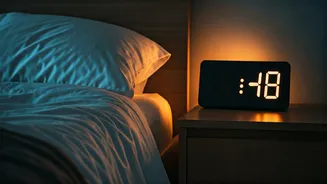Exhaustion: A Common Story
The pervasive feeling of exhaustion has become a shared experience for many people globally. The increasing demands of modern life, including long working
hours and constant connectivity, contribute to this widespread fatigue. Sleep deprivation, often a consequence of these pressures, has become a silent epidemic. It affects everything from our mood and productivity to our physical health. The impact goes beyond simply feeling tired; it can also affect cognitive function, leading to decreased attention and memory problems. The causes are multifaceted, spanning work, lifestyle, and even environmental factors. Understanding the depth of this exhaustion is the first step toward finding effective solutions and prioritizing sleep.
Trends: The Sleep Struggle
Various sleep trends are emerging as people look for solutions to combat exhaustion. These include everything from apps that track sleep patterns to various lifestyle changes to improve sleep quality. The impact of social media also plays a crucial role, with individuals often sharing their experiences and seeking advice. While some trends offer genuine solutions, it's essential to critically evaluate their effectiveness. Some popular trends include mindfulness exercises, tailored diets and supplements, and the use of blue light filters before bed. It's crucial to distinguish between evidence-based methods and passing fads to ensure that strategies are truly beneficial in the quest for improved sleep.
Future: The Sleep Crisis
Looking ahead, the future of the sleep crisis indicates a continued need for research and innovation. Predictions suggest that as societies become more demanding and technological advancements advance, the problems related to sleep may intensify. This situation calls for innovative approaches, from designing sleep-friendly environments to exploring advanced medical interventions for sleep disorders. Furthermore, there's a growing need for broader public awareness campaigns that promote the value of sleep and the recognition of its impact. These steps will be critical to managing and mitigating the widespread consequences of sleep deprivation in the years to come, ensuring the well-being of individuals and society.
Snooze: What to do now
To address sleep deprivation, various practical steps can be taken immediately. Establishing a consistent sleep schedule is a fundamental strategy. Go to bed and wake up at the same time every day, including weekends, to regulate the body's natural sleep-wake cycle. Create a relaxing bedtime routine to signal the body that it's time to rest. Avoid caffeine and alcohol before bed, as these substances can disrupt sleep patterns. Minimize exposure to screens, like phones or computers, before sleeping. Ensuring a comfortable sleep environment, such as a dark, quiet, and cool room, also contributes to better sleep. These straightforward adjustments can significantly improve sleep quality and reduce the feeling of exhaustion.













